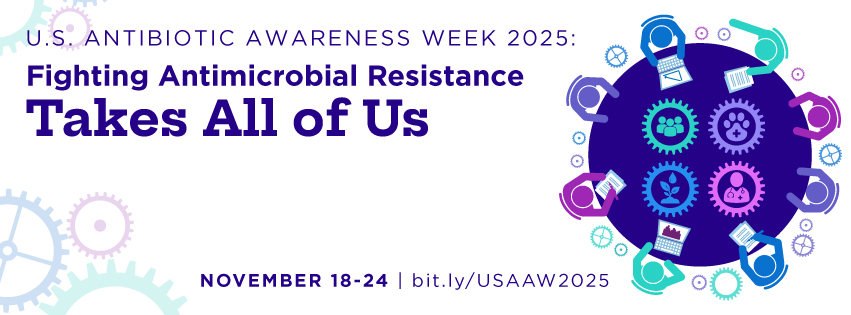The Overlooked Link Between Animal and Human Health
When we talk about antimicrobial resistance (AMR), most of us think about hospital-acquired infections or outpatient prescribing. But the reality is broader: antibiotic use in animals (both livestock and pets) contributes significantly to resistance patterns that affect human health. Resistant bacteria can spread from animals to humans through direct contact, food consumption, and environmental contamination. According to the FDA, antibiotics are commonly used in agriculture to prevent disease and promote growth in livestock. While these practices have improved productivity, they also create selective pressure for resistant organisms like Salmonella, Campylobacter, and certain E. coli strains, which can cause severe infections in humans.
Why Clinicians Should Care
- Foodborne Transmission: Resistant bacteria can enter the food chain and cause infections that are harder to treat.
- Community Spread: Resistant organisms from pets or farm animals can spread to humans through close contact.
- Global Impact: Agricultural antibiotic use accounts for a significant portion of total antibiotic consumption worldwide.
Understanding this connection helps us to advocate for responsible antibiotic use beyond the hospital walls.
Action Steps for Clinicians
- Educate Patients on Food Safety
- Wash hands after handling raw meat.
- Cook meat to safe internal temperatures.
- Avoid raw milk and unpasteurized dairy products.
- Support Policy and Advocacy
- Encourage adherence to FDA guidelines limiting non-therapeutic antibiotic use in livestock.
- Promote awareness of the One Health approach that integrates human, animal, and environmental health.
- Stay Informed
- Review FDA Veterinary Antibiotic Guidelines for updates on approved practices
Patient Education Tip
“Antibiotic resistance doesn’t just happen in hospitals; it can start on farms. Choosing meat raised without antibiotics, cooking meat thoroughly, and practicing good hygiene helps protect you and your family.”
Key Takeaways
- Veterinary antibiotic use impacts human health through foodborne and environmental pathways.
- Clinicians can play a role by educating patients and supporting responsible agricultural practices.
- Stewardship is a shared responsibility across sectors—human, animal, and environmental.
